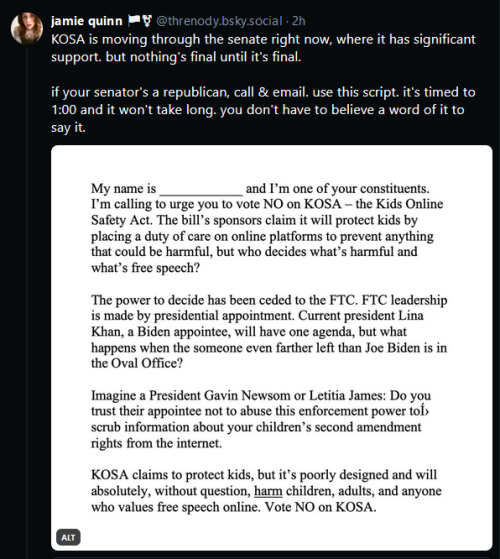December Affirmations
December Affirmations
─── ஓ๑❄️๑ஓ ───
my peace is my priority
i am financially abundant
i love myself, flaws and all
great things are coming my way
everything always works out for me
if it’s out of my control then i’ll make peace with it
More Posts from Sirkazuki and Others





✧✦ Sparkle / Hanabi &&. Furina Discord Layouts. req by anon.
Basic Cognitive Functions Guide
As an MBTI enthusiast, I like making little guides and notes to help me visualize and process information, so here ya go!
Two Attitudes
Extroverted (E): Functions oriented towards the real world—views things as is without personal alignment and filtering. "Breadth."
Introverted (I): Functions oriented towards the subject's world—views things through personal alignment and filtering. "Depth."
Two Categories
*Judging
Judging Function (Jx): Reason—a cause, explanation, or justification for an action or event—used to judge and decide.
Extraverted Judging (Je): Reasoning based on external effects. Looks at what should be.
Introverted Judging (Ji): Reasoning based on internal alignment. Looks at personalized principles.
*Perceiving
Perceiving Function (Px): Processes used in gathering or filtering information.
Extraverted Perceiving (Pe): Perceiving based on external exploration. Unfiltered gathering of information.
Introverted Perceiving (Pi): Perceiving based on internal narrowing down. Filtering information.
Four Aspects
*Inter/personal ("emotional"): Human-based matters. *Impersonal ("logical"): Nonhuman-based matters.
Feeling Functions (Fx): Judgment metrics oriented towards people and inter/personal matters. Emotional reasoning.
Thinking Functions (Tx): Judgment metrics oriented towards things and impersonal matters. Logical reasoning.
Intuition Functions (Nx): Perceiving processes oriented towards intangible information. Abstract perception.
Sensing Functions (Sx): Perceiving processes oriented towards tangible information. Concrete perception.
Eight Cognitive Functions (putting it all together)
*Judging Functions:
Extraverted Feeling (Fe): Reasoning based on external inter/personal effects—emotional consequences. "What should be valued."
Extraverted Thinking (Te): Reasoning based on external impersonal effects—logical consequences. "What should work."
Introverted Feeling (Fi): Reasoning based on internal inter/personal alignment—emotional particularities. "What feels right to me."
Introverted Thinking (Ti): Reasoning based on internal impersonal alignment—logical particularities. "What makes sense to me."
*Perceiving Functions
Extraverted Sensing (Se): Perceiving based on external concrete exploration—unfiltered gathering of tangible information. "What is."
Extraverted Intuition (Ne): Perceiving based on external abstract exploration—unfiltered gathering of intangible information. "What if."
Introverted Sensing (Si): Perceiving based on internal concrete narrowing down—filtering tangible information. "What has been."
Introverted Intuition (Ni): Perceiving based on internal abstract narrowing down—filtering intangible information. "What will be."
I made this based on my understanding of Psychological Types by Carl Jung. Click here if you'd like to view the guide in a different format and see the direct quotes i used from Jung's book.
KOSA IS GETTING FORCED THROUGH ATTACHED ARE SCRIPTS FOR EITHER A DEM OR REP SENATOR CALL NOW PLEASE











Exploration is in our nature. We began as wanderers, and we are wanderers still.
l photo: Sara Hunt l quote: Carl Sagan
The Faerie Queene is one of my hyperfixations right now, but I can’t find any content on it so it makes me sad
Still reading the Odyssey. How have I never seen anyone bring up a headcanon that Odysseus becomes scared shitless of the ocean after finally coming home to Ithaca? I'm talking mental-breakdown inducing phobia.
The man has spent TEN YEARS lost at sea. Each time he reached land, Poseidon was here to try to drown him. His twelve ships with six hundred men sunk. And later on, when Alcinoos' men sailed him back to Ithaca, Poseidon sunk that ship too. It just never ends. Odysseus has seen hundreds of men, friends, die at sea, he's been whipped by waves, choked by salt, he faced Charybdis on his own, nearly drowned more times than he can count, all of this to finally reach home knowing his journey has drowned hundreds of innocent people.
I'm telling you he'd never heal from that shit. After he finally reclaims the throne of Ithaca, maybe Telemachus mentions that some of his father's old friends are still waiting for news of him, that Nestor has no idea he managed to go home and that Menelaus weeps whenever he thinks of him.
So Odysseus agrees to follow his son to Pylos and Sparta, having to sail across the sea once again, and although the trip goes smoothly it's a living nightmare for Odysseus. The moment the ship departs, he prays Poseidon with all his might, begging him to spare his son. He can't stop puking and crying, choking on his own erratic breath, hallucinating and going paranoid. For a few days Telemachus really thinks he's fallen ill. The trip back is just as terrible and Telemachus has no idea how to comfort his father or to make him understand that the seas are safe for him now, as well as for all the people who travel with him.
Yet another reason why Odysseus needs to spend the rest of his life in a Penelope/Diomedes sandwich hug, I rest my case.

Congratulations!
You reached the bedrock after u scrolled ur feed so deep.

M8, Ripples of the Lagoon
Types Of Writer’s Block (And How To Fix Them)
1. High inspiration, low motivation. You have so many ideas to write, but you just don’t have the motivation to actually get them down, and even if you can make yourself start writing it you’ll often find yourself getting distracted or disengaged in favour of imagining everything playing out
Try just bullet pointing the ideas you have instead of writing them properly, especially if you won’t remember it afterwards if you don’t. At least you’ll have the ideas ready to use when you have the motivation later on
2. Low inspiration, high motivation. You’re all prepared, you’re so pumped to write, you open your document aaaaand… three hours later, that cursor is still blinking at the top of a blank page
RIP pantsers but this is where plotting wins out; refer back to your plans and figure out where to go from here. You can also use your bullet points from the last point if this is applicable
3. No inspiration, no motivation. You don’t have any ideas, you don’t feel like writing, all in all everything is just sucky when you think about it
Make a deal with yourself; usually when I’m feeling this way I can tell myself “Okay, just write anyway for ten minutes and after that, if you really want to stop, you can stop” and then once my ten minutes is up I’ve often found my flow. Just remember that, if you still don’t want to keep writing after your ten minutes is up, don’t keep writing anyway and break your deal - it’ll be harder to make deals with yourself in future if your brain knows you don’t honour them
4. Can’t bridge the gap. When you’re stuck on this one sentence/paragraph that you just don’t know how to progress through. Until you figure it out, productivity has slowed to a halt
Mark it up, bullet point what you want to happen here, then move on. A lot of people don’t know how to keep writing after skipping a part because they don’t know exactly what happened to lead up to this moment - but you have a general idea just like you do for everything else you’re writing, and that’s enough. Just keep it generic and know you can go back to edit later, at the same time as when you’re filling in the blank. It’ll give editing you a clear purpose, if nothing else
5. Perfectionism and self-doubt. You don’t think your writing is perfect first time, so you struggle to accept that it’s anything better than a total failure. Whether or not you’re aware of the fact that this is an unrealistic standard makes no difference
Perfection is stagnant. If you write the perfect story, which would require you to turn a good story into something objective rather than subjective, then after that you’d never write again, because nothing will ever meet that standard again. That or you would only ever write the same kind of stories over and over, never growing or developing as a writer. If you’re looking back on your writing and saying “This is so bad, I hate it”, that’s generally a good thing; it means you’ve grown and improved. Maybe your current writing isn’t bad, if just matched your skill level at the time, and since then you’re able to maintain a higher standard since you’ve learned more about your craft as time went on
Reblog if you Still Ship NaruSaku in 2022!
-
 m-a-es-blog reblogged this · 2 months ago
m-a-es-blog reblogged this · 2 months ago -
 rainbow-choco-cookiez reblogged this · 5 months ago
rainbow-choco-cookiez reblogged this · 5 months ago -
 rainbow-choco-cookiez liked this · 5 months ago
rainbow-choco-cookiez liked this · 5 months ago -
 porcelanitaa liked this · 5 months ago
porcelanitaa liked this · 5 months ago -
 sara-001s-blog liked this · 5 months ago
sara-001s-blog liked this · 5 months ago -
 prettylittle-filly reblogged this · 5 months ago
prettylittle-filly reblogged this · 5 months ago -
 prettylittle-filly liked this · 5 months ago
prettylittle-filly liked this · 5 months ago -
 hotweeb liked this · 5 months ago
hotweeb liked this · 5 months ago -
 mikrokosmione liked this · 5 months ago
mikrokosmione liked this · 5 months ago -
 insaneinpink reblogged this · 5 months ago
insaneinpink reblogged this · 5 months ago -
 caraxesvibe liked this · 6 months ago
caraxesvibe liked this · 6 months ago -
 itsgeorrge liked this · 6 months ago
itsgeorrge liked this · 6 months ago -
 onesd78 liked this · 8 months ago
onesd78 liked this · 8 months ago -
 theblackone44 liked this · 1 year ago
theblackone44 liked this · 1 year ago -
 ribbenxo reblogged this · 1 year ago
ribbenxo reblogged this · 1 year ago -
 livinpipedreams liked this · 1 year ago
livinpipedreams liked this · 1 year ago -
 coolioschwulio liked this · 1 year ago
coolioschwulio liked this · 1 year ago -
 serrantsaloto liked this · 1 year ago
serrantsaloto liked this · 1 year ago -
 mimicatric liked this · 1 year ago
mimicatric liked this · 1 year ago -
 bubbles0bop liked this · 1 year ago
bubbles0bop liked this · 1 year ago -
 kentosbabymama reblogged this · 1 year ago
kentosbabymama reblogged this · 1 year ago -
 kentosbabymama liked this · 1 year ago
kentosbabymama liked this · 1 year ago -
 sukunaswhxre729 reblogged this · 1 year ago
sukunaswhxre729 reblogged this · 1 year ago -
 sukunaswhxre729 liked this · 1 year ago
sukunaswhxre729 liked this · 1 year ago -
 liliesdiary liked this · 1 year ago
liliesdiary liked this · 1 year ago -
 yungmadzz liked this · 1 year ago
yungmadzz liked this · 1 year ago -
 paradise-restored liked this · 1 year ago
paradise-restored liked this · 1 year ago -
 daintyinsider reblogged this · 1 year ago
daintyinsider reblogged this · 1 year ago -
 daintyinsider liked this · 1 year ago
daintyinsider liked this · 1 year ago -
 jussstnieceyy reblogged this · 1 year ago
jussstnieceyy reblogged this · 1 year ago -
 scorpionextdooor reblogged this · 1 year ago
scorpionextdooor reblogged this · 1 year ago -
 vividre4ms liked this · 1 year ago
vividre4ms liked this · 1 year ago -
 magicaldeerchopshop liked this · 1 year ago
magicaldeerchopshop liked this · 1 year ago -
 youralonefriend liked this · 1 year ago
youralonefriend liked this · 1 year ago -
 toiletpotato liked this · 1 year ago
toiletpotato liked this · 1 year ago -
 pyrkawegierska liked this · 1 year ago
pyrkawegierska liked this · 1 year ago -
 ykmnnn liked this · 1 year ago
ykmnnn liked this · 1 year ago -
 sakshikokne liked this · 1 year ago
sakshikokne liked this · 1 year ago
